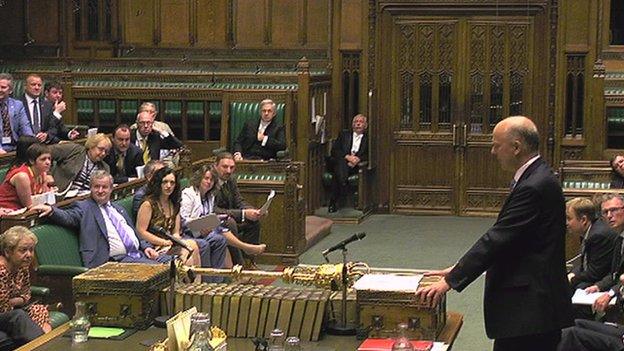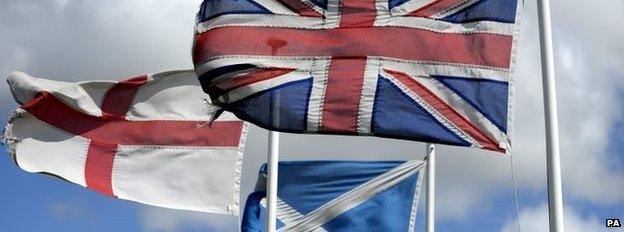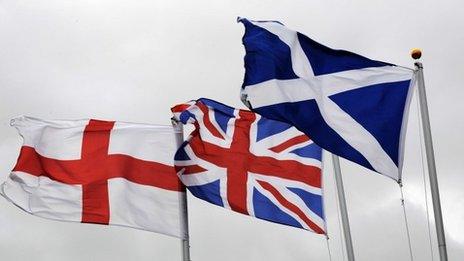English votes for English laws plan to be delayed
- Published

Commons leader Chris Grayling says the government is clarifying its plans to give England's MPs a veto over English laws, with a vote delayed to September.
A redrafted version of the plan will be published on Monday and debated for two days next week, Mr Grayling said.
He would then "publish and table a final set of standing orders" which MPs would debate after the summer recess.
Labour said the "reckless and shoddy" plans had descended into "chaos" while the SNP said it was a "shambles"
The government believes bills applying exclusively to England should not become law without the explicit consent of MPs from English constituencies and it wants to change Commons rules known as standing orders to give them a "decisive say" during their passage.
'Descended into chaos'
The plan had been for a new Commons stage to be introduced for laws passing through Parliament with England's MPs asked to accept or veto legislation only affecting England before it passes to a vote of all UK MPs at third reading.
Ministers say this will address the longstanding anomaly by which Scottish MPs can vote on issues such as health and education affecting England but English MPs have no say on similar matters relating to Scotland, where such policies are devolved.
A similar process would be used, including Welsh MPs, where matters covered only England and Wales.
However, the plans came under sustained attack earlier this week from Labour, SNP and Lib Dem MPs in an urgent debate, secured by former Scottish Secretary Alistair Carmichael.

West Lothian Question

Many powers - like education - have been devolved from Westminster, and are the responsibility of the Scottish, Welsh and Northern Irish governments
In 1977 Labour MP Tam Dalyell - the MP for West Lothian - highlighted what he saw as a dilemma caused by devolution: that Scottish MPs would carry on voting on English issues but English MPs wouldn't have a say on matters in Scotland
He said it was absurd that he was able to vote on matters affecting the English town of Blackburn, Lancashire, not Blackburn, West Lothian, which was in his own constituency
Debate over the anomaly has intensified with the new powers being handed to Scotland following its independence referendum

The debate also revealed concerns among some Conservative MPs, which could have threatened a government defeat on the measures.
Shadow Commons leader Angela Eagle said the Commons schedule had been "clearly subject to last-minute, sudden change" and said the "shoddy" plans had "descended into chaos".
She claimed Mr Grayling had been "summoned to the prime minister's office to account for your role in creating this mess".
Mr Grayling said the changes were the result of having "listened to comments from MPs".
A senior government source said the modified proposals were technical changes aimed at clarifying how the new process would work, in particular in relation to measures which might not cover Scotland but which had knock-on effects on its funding via the Barnett formula.
The source said: "It's not a rewrite in any shape or form."
The prime minister's official spokeswoman said that David Cameron had discussed the matter with Mr Grayling and the delay "respected the parliamentary process".
She added that the "policy hasn't changed" and ministers remained committed to delivering it so that every part of the UK had a say on matters relating to them.
But the SNP's Pete Wishart said the government was in "headlong retreat" on the issue.
"What this farce underlines is how weak the Tory government is with its wafer-thin majority, and how strong opposition can force them to change course," he added.
- Published2 July 2015

- Published12 July 2021
